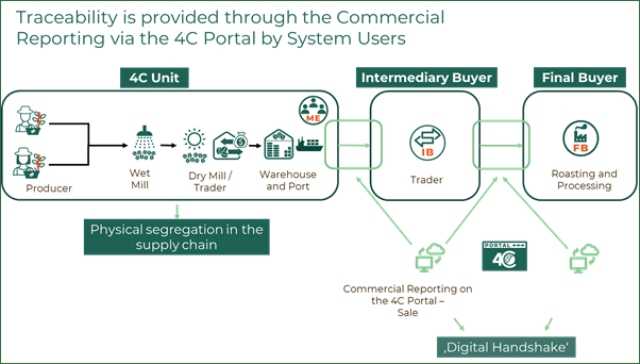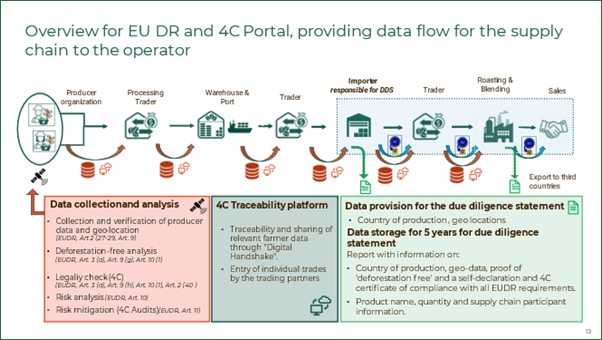COLOGNE, Germany – The 4C certification system, in collaboration with its partner organization Global Risk Assessment Services (GRAS), now offers customized solutions to EU importing operators and their suppliers in response to the EU regulation on deforestation-free products, which took effect on June 29, 2023.
While operators have an 18-month window to meet the new export requirements for coffee to the EU – including the adoption of deforestation-free practices, operational legitimacy, and supply chain traceability – proactive roasters and traders are anticipated to seek evidence of compliance even before the full implementation by the end of 2024.
The 4c certification system
In light of this, 4C strongly encourages coffee producers to promptly align with these requirements and is pleased to announce the launch of its comprehensive solution.
The EUDR intends to tackle global deforestation and advocate for sustainable practices across various commodity markets, including coffee.

Under this regulation, any operator or trader involved in placing such commodities on the EU market or exporting from it must provide evidence that the products do not originate from recently deforested land or contribute to forest degradation.
Compliance with the EUDR is centered around three key pillars: deforestation-free production, legitimacy, and traceability.
The Due Diligence Statement, supported by comprehensive evidence, will be instrumental in facilitating the import and trade of green coffee beans in the EU.
Utilizing risk assessments for deforestation and land use change, along with additional data sourcing, the due diligence process involves evaluating risk factors, implementing mitigation measures, and ensuring traceability. 4C is looking forward to supporting the coffee sector in meeting these crucial regulatory requirements.
The collaborative approach leverages state-of-the-art tools for risk assessments, incorporating satellite image interpretation for deforestation and land use change. This is complemented by an extensive data set covering national legislation, human rights, claims by indigenous peoples, corruption indices, and law enforcement activities.
The integration of on-the-ground expertise from 4C certification and third-party verification establishes a robust foundation for constructing a compelling due diligence case. The 4C Portal facilitates this process by allowing the upload and replication of the entire coffee flow, including relevant actors in the supply chain, to adequately demonstrate traceability.
About 4C
4C is a leading sustainability certification scheme for the entire coffee sector. 4C certification focuses on good agricultural and management practices, including requirements on economic, social and environmental conditions for coffee production and processing in order to establish credible sustainable and transparent supply chains. For more info click here.




















